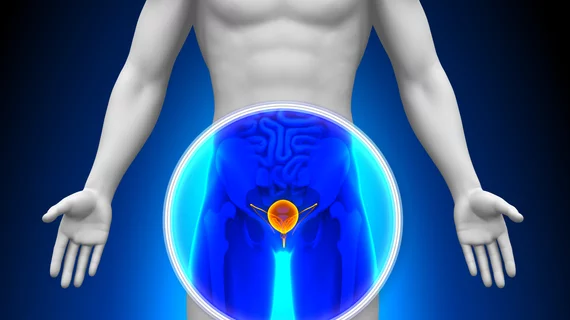Prostate AI flirts with perfection on accuracy
An AI system for diagnosing prostate cancer on biopsy slides has achieved 98%-plus performance in sensitivity, positive predictive value, specificity and negative predictive value.
The model, developed by Paige.AI in New York City, made the showing in a study conducted at Yale University and Memorial Sloan Kettering Cancer Center. Modern Pathology published the study March 29.
Co-led by David Klimstra, MD, who co-founded Paige.AI and chairs the pathology department at Sloan Kettering, the team trained the system on the cancer center’s digital slide archive.
They tested its acumen for making an up or down call—“suspicious” or “not suspicious”— on almost 1,900 lab slides of prostate tissue acquired at Yale Medicine.
Lead author Sudhir Perincheri, MD, PhD, of Yale and co-authors report that the tool, Paige Prostate, identified or ruled out cancer with sensitivity of 97.7% and positive predictive value of 97.9%, along with specificity of 99.3% and negative predictive value of 99.2%.
When the AI stumbled, the cause was usually poor image quality.
The authors conclude that the study’s results “demonstrate the feasibility of porting a machine-learning algorithm to an institution remote from its training set and highlight the potential of such algorithms as a powerful workflow tool for the evaluation of prostate core biopsies in surgical pathology practices.”
Sloan Kettering and Paige.AI have been in the news together before. The pairing drew media fire over their closeness and potential profitability in 2018. The next year, the FDA designated Paige.AI’s software a breakthrough technology.
The journal has posted the new study in full for free.

